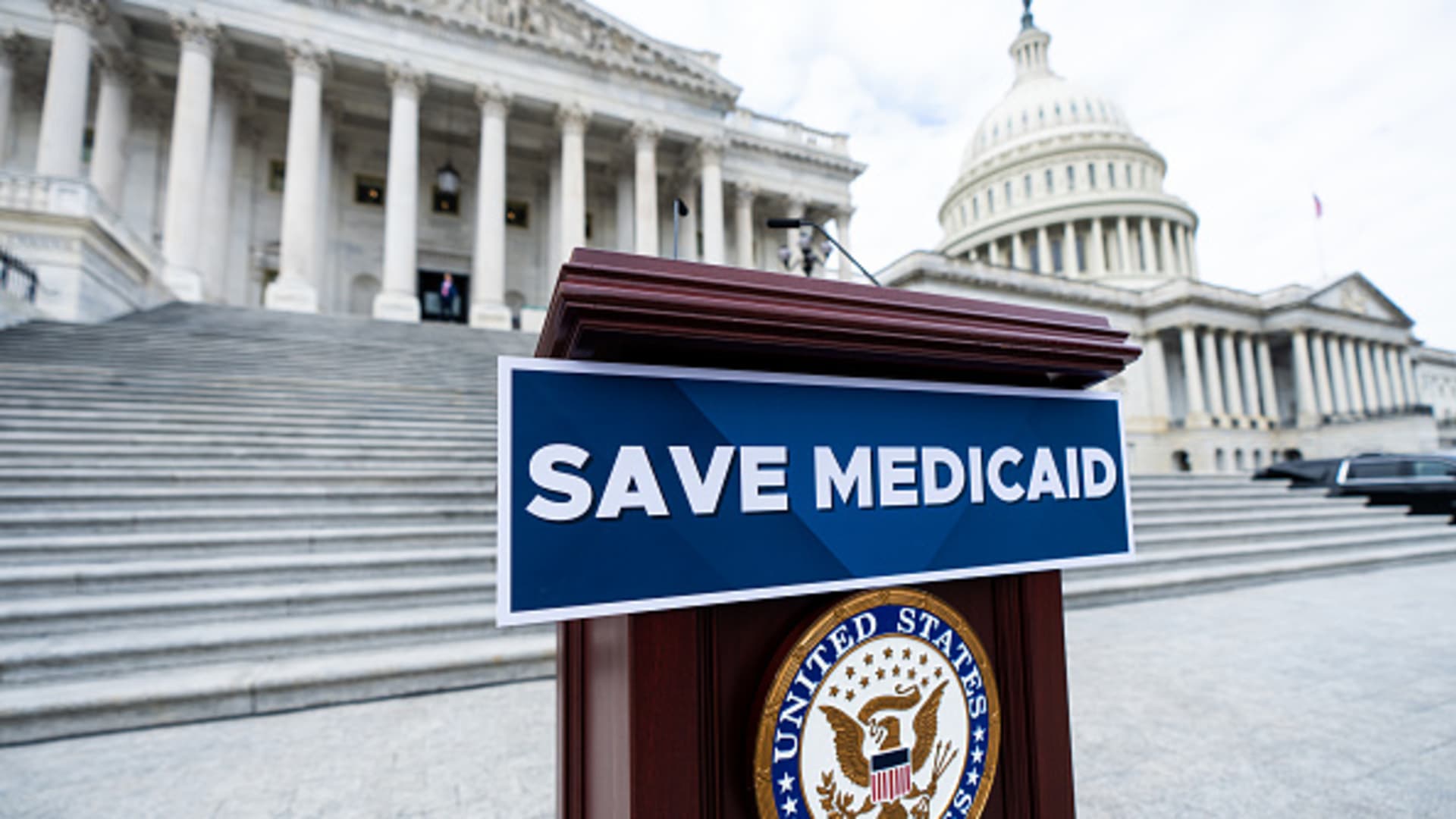What historic Medicaid and SNAP cuts in House Republican bill would mean for benefits

A “Save Medicaid” sign is affixed to the podium for a House Democrats’ press event to oppose the Republicans’ budget, on the House steps of the Capitol, Feb. 25, 2024.
Bill Clark | Cq-roll Call, Inc. | Getty Images
Historic spending cuts to Medicaid health coverage and to SNAP, formerly known as food stamps, are included in the budget package passed by the House of Representatives on Thursday.
Now, it is up to the Senate to consider the changes — and to perhaps propose its own.
As it stands, the legislation — called the “One Big Beautiful Bill Act” — would slash Medicaid spending by roughly $700 billion and the Supplemental Nutrition Assistance Program, or SNAP, by about $300 billion, the largest cuts in the programs’ histories.
“Bottom line is, a lot of people will lose benefits, including people who are entitled to these benefits and who are not the target population of this bill,” said Jennifer Wagner, director of Medicaid eligibility enrollment at the Center on Budget and Policy Priorities.
More from Personal Finance:
How the House Republican tax bill favors the rich
Tax bill includes $1,000 baby bonus in ‘Trump Accounts’
Food stamps face ‘biggest cut in the program’s history’
The reconciliation bill would add roughly $3 trillion to the nation’s debt including interest over the next decade, the Committee for a Responsible Federal Budget estimated.
To help pay for a variety of tax perks, primarily for the wealthy, that are included in the bill, House Republicans have targeted Medicaid and SNAP for savings.
“We don’t want any waste, fraud or abuse,” President Donald Trump said Tuesday on Newsmax when asked about prospective Medicaid changes. “Other than that, we’re leaving it.”
One way House Republicans are seeking to curb the programs’ spending is through new work requirements.
KFF.
The increased frequency of the redeterminations is “likely to have a big impact,” Tolbert said.
Ultimately, the work requirements may make it difficult for people to access the health coverage they need, she said.
“What this may end up doing is having the opposite of the intended effect,” Tolbert said. “They may lose access to the very treatments and services that are enabling them to work.”
Urban Institute.
In addition, federal funding cuts would require states to contribute more toward benefits and administration of the program.
[title_words_as_hashtags




